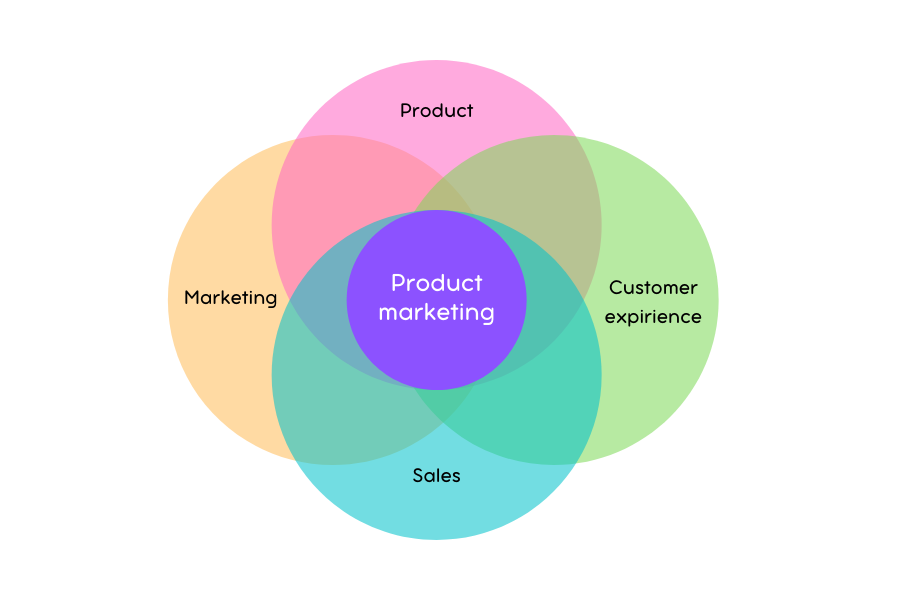Non-product Сontent in Product Marketing
Product marketing is a complex function involving research, promotion, and selling products to customers. A marketing manager is needed before a product launch when the task is to create a go-to-market strategy and product positioning. After the release, the marketing manager works to stimulate demand, increase sales, and improve the customer experience. Product marketing is at the intersection of product strategy, sales, marketing, and customer success.
For those brands that have chosen the D2C promotion model, product marketing is of great importance because they are fully responsible for the success of a new product and its acceptance by the consumer.
One of the critical stages of product marketing is communication with consumers. The very concept of “product marketing” tells us that in this communication, it is necessary to focus on the product. But is that true?
We believe a brand must show its products to customers and actively use non-product related content – entertaining, educational, expert content. There are two important reasons for this:
First, non-product content improves the communication process, making it more interesting for community members.
It can be a story about the processes behind the results, photos from production or the development department, funny moments from work chats, a story about overcoming difficulties. If a brand does not hide anything and is ready to show the process of creating a product, customers’ confidence in product quality grows.
The behind-the-scenes view, when correctly displayed, humanize the brand in the eyes of the buyer, and evoke a sense of familiarity. Do not forget that people are curious and love to spy on other people’s lives. A reality show in miniature is much more interesting than just photos and product descriptions.
In addition, this type of content evokes a sense of belonging, involvement. We have already given examples of how a brand-built community can participate in product creation. At the creation stage, questions addressed to users help make the product better and increase customer loyalty even before the product is launched.
Posting customer comments or testimonials provides social approval and in turn reduces the risk for those customers who are just considering a purchase.
The second reason to use non-product content is to improve the customer experience. People buy your products not to own them, but to use them. Tips, life hacks, training videos will do just that. Reviews and testimonials from other users will make product expectations more realistic making a significant impact on customer satisfaction. Technical support tips will help to solve any problem which may arise while using the product.
Usually, people have an idea of how they intend to use a particular product. But what if they don’t know about some other usages of the product? A brand can use its product in new ways and increase either the number of customers or the degree of their involvement. An example would be the Evernote app. In the last two years the brand promotion strategy was based on how their services could be used. In addition to creating templates on their platform, they filled the Internet with educational posts and videos from bloggers and influencers. As a result, the application has transformed from being solely associated with note taking and is now used to create mini-sites, post resumes and portfolios, family calendars, photo albums, and organize team collaboration.
Syntes also has new cases with the successful use of non-product content. For example, we began to post recipes for simple dishes that the brand’s customers can prepare using purchased household appliances on the Scarlett corporate website. As a result, within a month after the appearance of this section, organic traffic increased by 76%.
The “News” section of the Razer brand computer accessories site brings in 2,500 new visitors a month. The “Community” section also provides significant support to sales.
***
Different types of non-product content should be used at various stages of product creation and promotion. The flexibility of the corporate website or online store becomes an important point. The software part of the site should make it easy to adapt to the current brand’s demand, and the team hosting the content should quickly respond to the requests of the marketing department.
Syntes fully undertakes the management of the partners’ branded stores. This allows a brand to outsource the functions of operational sales management and create a product marketing strategy at the stage of product promotion, posting different types of content on the site and creating a successful customer experience for buyers, maintaining their loyalty. We have access to a complete set of website management tools on our platform, and a qualified team fully implements its capabilities. Collecting analytics will show precisely how customers interact with the site to help increase sales.
Syntes, an international company, develops a next-generation MDM (Master Data Management) and PIM (Product Information Management) cloud platform and provides brands and manufacturers with services for creating, managing and automating D2C (Direct-to-Customer) sales and marketing channels. Syntes solutions and services are used by the world’s leading brands and manufacturers of consumer and business products such as Razer, Scarlett, Pantone, X-Rite, AVerMedia and others. Syntes is a registered trademark of Syntes, Inc.
Mentioned trademarks and company names are registered trademarks of their respective owners.
© Copyright Syntes, Inc. Copying, reprinting, and any reproduction is permitted only with the written permission from Syntes, Inc.





